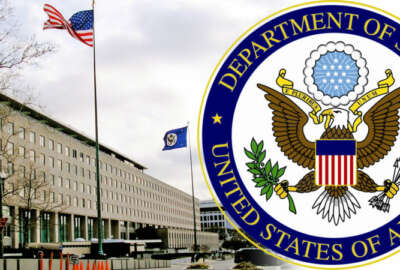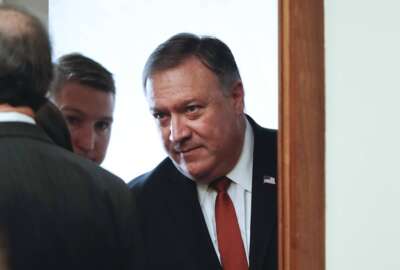
State Department personnel chief sees opportunities, challenges with less experienced workforce
Carol Perez, director general of the Foreign Service and director of human resources at the State Department, said more than 50 percent of the agency's Foreign...
Best listening experience is on Chrome, Firefox or Safari. Subscribe to Federal Drive’s daily audio interviews on Apple Podcasts or PodcastOne.
The State Department, back in February, reported nearly half of its employees in the Senior Executive Service and nearly a quarter of its GS-15 employees are eligible to retire.
However, Carol Perez, director general of the Foreign Service and director of human resources at the State Department since February, said more than 50 percent of the agency’s Foreign Service and Civil Service have less than 10 years of experience with the agency.
“I think it’s great that we have people that are new to the organization. They bring us a lot of innovation and ideas, but it’s also more challenging when you have people that have less experience as well,” Perez, a former U.S. ambassador to Chile and a career Foreign Service officer with more than 30 years of experience at the agency, said in an interview last Friday.
Back in February, just a few weeks into Perez’s tenure in her new role, the State Department released its five-year workforce plan. The plan, she said, takes a deep dive on the current state of the workforce and provides a path forward to strengthen it.
“It talks a lot about what we do in terms of recruitment, the kinds of people we want to bring in,” Perez said. “It looks at things like promotion, how are we making sure that employees that are deserving of opportunities to advance are advancing.”
The report also takes a close look at attrition rates, whether through retirement or employees who separate from the agency. Perez cited a low attrition rate for entry-level members of the Foreign Service, due to its competitive nature, but noted the attrition rate increases for mid-career employees because of an “up or out” personnel system.
“Some people may actually have served the maximum amount of time they are allowed to in the service,” Perez said.
Perez said the agency continues to receive strong interest from recent graduates, despite a dip in new Foreign Service applicants. In February, NBC News reported that between October 2017 and October 2018, 8,685 people signed up to take the Foreign Service Officer Test, a 22% decline compared to the previous year, and the lowest number of test applicants since 2008.
Perez said the number of test-takers still well exceeds the number of Foreign Service vacancies and added that the number of applicants generally ebbs and flows with the state of the economy.
“If our pass rate changes, then maybe we have a problem, [but] it’s stayed steady. And because our [vacancy] numbers are so small, we get exceptional, exceptional candidates,” Perez said. “Generally, the number of test-takers that we have is a reflection of how the economy is doing. So when you move towards full employment, we have less people that take the exam, because there’s just more opportunities,”
In addition, Perez also noted that an increase in the number of overseas roles in the private sector and with non-government organizations may account for some of the decrease in applicants.
Early in her tenure, Perez welcomed new classes of Foreign Service and Civil Service specialists into the agency. These new hires serve roles that support the diplomatic mission and include IT specialists engineers and financial managers, as well as doctors and nurses.
“We have a little bit of everything, and we need that because we … have to provide all these services not only to our internal community, but to support Americans that are visiting or living overseas as well,” Perez said.
I am proud to welcome the 160th #CivilService & 151st #ForeignService Specialist classes to the @StateDept family! Your experience, expertise & diverse perspectives strengthen our talented team. pic.twitter.com/fySZWdPPtO
— Carol Z. Perez (@StateDG) February 8, 2019
Later this year, the agency will have its first cohort of Foreign Affairs Information Technology (FAIT) fellows go out into the field. The fellowship began as a pilot program in 2017, aimed at supplementing its more established Thomas Pickering and Charles Rangel fellowships.
Perez said the State Department is looking to quadruple the number of fellows that it has now.
“I think it gives somebody a really good opportunity to serve overseas, but also [in] very challenging and very interesting environments,” Perez said. “So we really do want to continue to have these kinds of programs that give us the best and the brightest, but also gives talented individuals an opportunity to work with us.”
Copyright © 2025 Federal News Network. All rights reserved. This website is not intended for users located within the European Economic Area.
Jory Heckman is a reporter at Federal News Network covering U.S. Postal Service, IRS, big data and technology issues.
Follow @jheckmanWFED





